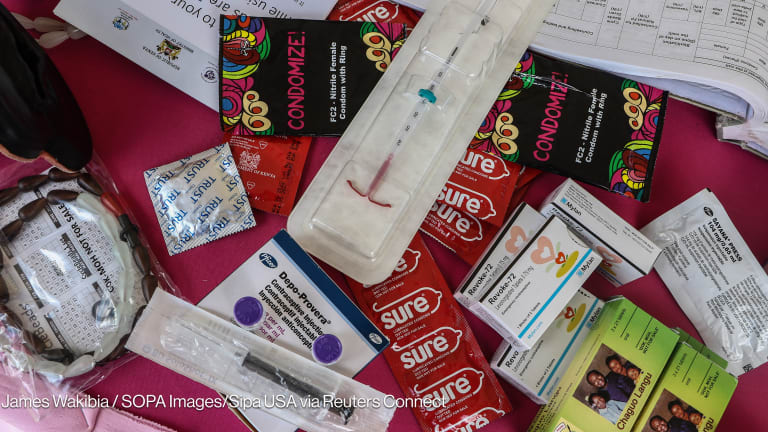
Today marks the seventh annual World Contraception Day — a campaign organized by a coalition of non-governmental, scientific, and medical organizations, which aims to raise awareness about the benefits of universal access to family planning tools. For the most part, Washington supports this cause: the United States has played a leading role in international family planning efforts for more than five decades and has provided roughly half of total donor funding for family planning in foreign countries.
The United States Agency for International Development (USAID), which leads many international family planning efforts, launched its first family planning program in 1965 and has been enabling the distribution of contraceptives in developing countries since 1968. Today, USAID’s family planning programs operate in more than 50 countries around the world and have helped millions of women access the life-saving contraceptives they need to plan their pregnancies.
Washington has much to gain from investing in international family planning programs. In their 2012 report, Adding It Up: Costs and Benefits of Contraceptive Services, the United Nations Population Fund (UNFPA) and the Guttmacher Institute estimated that adequate access to contraceptives in developing countries would prevent 54 million unintended pregnancies, 26 million abortions (16 million of which would be unsafe), 21 million unplanned births, and 7 million miscarriages.
And the benefits of family planning extend beyond women. Universal access to contraceptives could prevent more than one million infant deaths, improve child nutrition and general health, and reduce the spread of HIV/AIDS. Furthermore, when a woman is able to plan pregnancy, she is more likely to stay in school, join the workforce, gain an income, and fulfill her potential as a productive citizen. Female education and employment help close the gender gap, spur economic growth, and stabilize societies.
Expanding access to family planning could also save billions of dollars in global healthcare costs, freeing up resources for other health and development initiatives. And family planning programs could help curb worrying demographic trends in developing countries, where many weak economies and governments are not yet able to support burgeoning youth populations.
The Obama administration has demonstrated a strong commitment to international family planning goals, increasing family planning funding by forty percent from 2008 to 2012. The Obama administration has also lifted funding restrictions on family planning programs and reissued funding to the UNFPA in 2009, which was suspended under the Reagan and both Bush administrations. Recognizing that access to family planning helps women live healthy and productive lives, the United States included family planning as a primary objective in its Global Health Initiative — a development strategy seeking “to achieve significant health improvements and foster sustainable, effective, efficient and country-led public health programs that deliver essential health care.” The United States also supports the aspirations of the 2012 London Summit on Family Planning, a global partnership committed to providing 120 million women in developing countries with reproductive health resources by 2020.
In recent years, the United States and other countries have made family planning a global development priority. However it is likely that contraceptives and other modern methods of family planning will remain subjects of heated debate. Even though the United States has been a leader in the field for decades, the country’s policies on family planning are not always straightforward. Family planning funding has been historically controversial and executive branch support of international programs has been inconsistent. Therefore it is essential that U.S. policymakers are continually reminded of how universal access to family planning can further U.S. interests by improving the lives of women, growing economies, accomplishing international development goals, and securing stable societies worldwide.
Edited for style and republished with permission from the Council on Foreign Relations. Read the original article.








